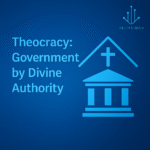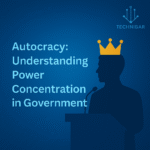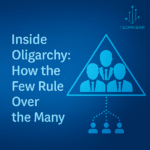Aristocracy is one of the earliest forms of government and this term is based on a Greek term “aristokratia”, which means the “rule of the best”. Although initially the term indicated the ruling by those who were most worthy or competent, with the course of time, it acquired a strong connection with birthright, affluence. Nevertheless, its impact keeps on influencing political thinking, culture identity as well as power structure globally.
What is Aristocracy?
Fundamentally, aristocracy is a system of rule. The premise is the fact that this group is the most educated and moral citizens of the society. Aristotle held that aristocracy was possible in the sense that the rulers obtained a true common good. But he surprisingly cautioned against the fact that has the propensity to revert to oligarchy, when the elite rule in their own selfish interests.
Past of Aristocracy
The ancient Greece and Rome
In Sparta, warrior-elites were the ruling group, and, in Athenians, aristocratic families usually took leading positions in society.
Medieval Europe
This was an aristocracy based on birth, the foundations of a very strict hierarchical society whose political, economic and legal privileges were not available to the common man.
Renaissance and the era of Enlightenment
The enlightenment opposed aristocratic privilege and promoted the demand towards equality, meritocracy and republicanism. The French Revolution (1789) became the turning point because it overthrew the violent feudal and aristocratic system of France and served as an inspiration to such uprisings in the rest of Europe.
The 19th and 20th Centuries
The aristocracies persisted even after political revolutions albeit in altered forms. In Britain, the House of Lords still remained to have the legislative power.
Aristocracy Types
Hereditary Aristocracy
Aristocracy is governed by power based on hereditary and normally. It includes accompanying land titles and entitlements to social dictums. Typical of feudal Europe.
Meritocratic Aristocracy
In theory, the strongest leadership is by the cream (e.g. those who are most educated, virtuous or perform well), e.g. the philosophers: kings by merit as conceived by Plato.
Political Aristocracy
Used in the republics or mixed systems, where a limited elite rules the state in spite of formal equality, sometimes called an informal aristocracy.
Economic- Aristocracy (Plutocracy)
Where money is the key to power resulting in a group of elite who may lack noble titles but have aristocratic control.
Benedicts of Aristocracy
Stability and Continuity
A political stability which comes by way of well-developed institutions and succession systems can be delivered within Aristocratic systems.
Experienced Leadership
The aristocrats usually pursue high-end education and training hence making them have the privilege of taking up governance roles at a tender age.
Cultural Preservation
Patriarchal aristocratic families contributed to the national traditions, celebrated languages and cultural heritage of the nation.
Noblesse Oblige and Responsibility
A few aristocrats ideally accepted the concept of noblesse oblige, which means that privilege requires obligations to the common good of people.
Reduced Populism
Aristocracy restricts the effects of populism affecting general democracies and may induce emotional or shortsighted decisions.
Negative aspects about Aristocracy
Differentiability and Injustice
The aristocracy establishes a strict kind of caste structure in which most people who belong to the bottom stratum do not receive access to power and privilege by virtue of being born, but only by virtue of merit.
Change Resistance
Aristocratic elites tend to fight any kind of social changes that will diminish their position, which results in stagnation or unrest
Accountability Deficiency
Failure to have rulers who are elected by the people or are answerable to the masses may lead to corruption, misuse of powers, and alienation with the aspirations of ordinary citizens
Coteries and Condescension
The aristocrats can further acquire the feeling of superiority and reject the ideas, culture, or contributions of the other classes.
Inherited Weaknesses of Rule
Being born does not imply intelligence, virtue or capability thus an hereditary rule is a gamble.
Aristocracy vs. Other source of Government
Democracy is based on equality and rule by people whereas aristocracy is dominated by governance by the few.
Autocracy is concentration of power into the hands of a single ruler but in aristocracy the power is dispersed among a group of people.
Technocracy posits authority on merit and skills which is in common with the romanticized ideology of aristocracy, but not the hereditary one.
Oligarchy can easily be confused with aristocracy, however, oligarchy puts more emphasis on power of the few-whether good or not well born.
Contemporary Application of Aristocracy
Formal aristocratic rule has been doomed to the past to a great extent today. But the aristrocratic cultural and economic heritage still remains. In other countries such as the United Kingdom, Spain and Japan, noble families continue to have ceremonial jobs or exert cultural influence. A good example is how the British monarchy has remained to represent tradition, stability and a sense of nation yet, in political terms, it has little to no power.
Modern capitalistic society also creates informal aristocracies. Influential sectors of industry, political capital, and even the media, include elite groups, family dynasties, and well-established networks of power; these are used to exercise a disproportionate amount of control and influence in politics, media, and finance; they are an informal version of the new aristocracy with no titles.
The philosophy and fiction also provide the idea of the aristocracy. Philosophers such as Nietzsche were in favor of a higher breed of humans who ruled the society. Numerous fantasy novels and movies such as Game of Thrones, or the Lord of the Rings romanticize the aristocratic orders that mix power, honor and legacy.
Social Mobility and Aristocracy
Social mobility is regarded as a prominent value in the current meritocratic ideas. By definition, this is restricted by Aristocracy. But even in democratic countries such institutions of elites (such as Ivy League universities of elite clubs). It tend to re-create closed networks that recall aristocratic privation. This produces significant controversies of access, inequality and control in current societies.
Conclusion
Aristocracy which was a major type of government. That even dominated the absolutism form of governance. It is already in retirement due to the principles of democracy. The aristocracy system reveals itself. The role of society in defining leadership, power division, and legitimizing inequality. Although democracy encourages participation as well as equality the leftovers
Frequently Asked Questions (FAQs)
1. Does aristocracy exist or are applicable today?
Yes, but traditional aristocracy are not found by anywhere in modern politics. however, informal aristocracies. It does exist in most societies. With rich household names, elite schools and legacy admissions in elite universities the best democracies can even promote aristocratic rules.
2. How does the aristocracy and oligarchy contrast?
Whilst in both forms of government the rule is by the few. In both cases the rule of the best in aristocracy. Oligarchy is broader in meaning and any few persons. It whether rich, powerful or well-connected. And operating in their own interests are termed as oligarchy.
3. Is it possible to be an aristocracy and also be democratic?
Hypothetically, yes. Certain systems bring an elite in a system that is democratic. Such as, an example of such would be that constitutional monarchies. And a prominent upper house. The House of Lords can be considered. It is an aristocratic unit of government used in a democratic state.
4. Then are aristocracies good?
Yes, aristocracies may provide stability, continuity and cultural leadership. Nevertheless, there is usually a price to this benefit which is inequality and inadequate representation.
5. Was the French revolution able to abolish Aristocracy in Europe?
Hereditary aristocracy was devastatingly hit by the French Revolution, as now titles, rights of aristocracy ceased. Aristocracies were, however, continued elsewhere in Europe and succumbed to.













